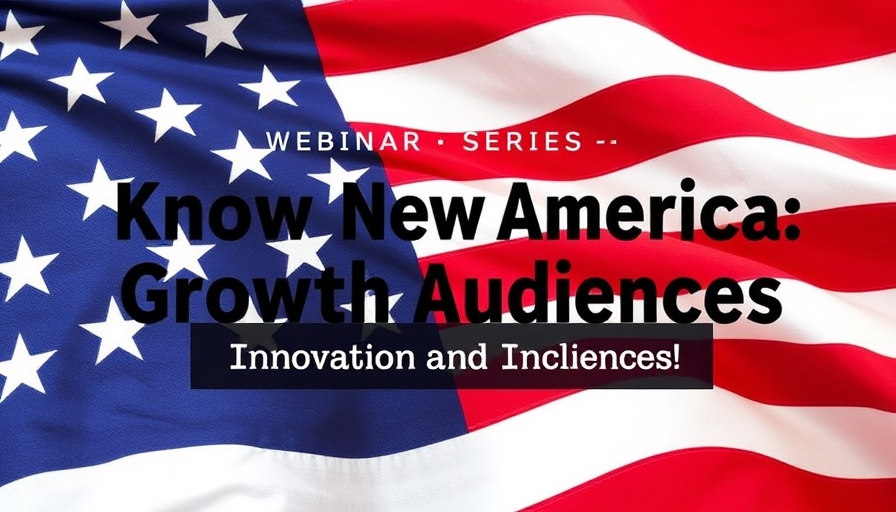
Understanding America’s Growth Audiences: A Modern Perspective
As we navigate through the complex tapestry of America’s demographic landscape, it becomes evident that understanding the future growth audiences is essential for businesses, marketers, and leaders. Recent trends suggest that these audiences are evolving, shaped by economic changes, technological advancements, and shifting social values.
Historical Context and Background
The emergence of new demographics isn’t a novel phenomenon. Historically, shifts in society—driven by economics, technology, and migration patterns—have crafted the consumer landscape. Looking back, we can see how the Baby Boomers shaped markets with their distinct preferences before the Millennials and now Gen Z emerged, bringing new ideals and consumption habits that require businesses to adapt their approaches to marketing and engagement.
Why Knowing Growth Audiences is Valuable
Understanding these new audiences means investing in a future that not only aligns with consumer demands but anticipates them. Businesses that can recognize and cater to the nuances of these demographics position themselves to build long-term relationships with consumers based on trust and reputation. As the marketing landscape shifts toward reputation marketing, aligning business strategies with these demographics can enhance brand image and loyalty.
Future Trends and Predictions
With increasing attention to social issues and a preference for sustainable practices, today's audiences are more socially conscious. They tend to favor brands that reflect their values, especially when it comes to environmental issues and equality. Brands that fail to engage meaningfully with these concerns risk losing relevance. The idea of ‘purpose-driven’ marketing is key, where brand narratives align with societal missions.
Counterarguments and Diverse Perspectives
While many advocate for adapting marketing strategies to encompass these new demographics, others argue that it can dilute brand identity. The challenge lies in balancing authenticity with adaptation. Is it possible to stay true to a brand’s core values while diversifying marketing efforts? This debate prompts brands to reflect genuinely on their identity, ensuring they evolve without losing what makes them unique.
Actionable Insights for Businesses
For businesses looking to harness the power of these audience insights, the first step is thorough market research. Understanding who their growth audiences are, what they value, and how they communicate is paramount. Companies should establish robust feedback mechanisms to gather data from consumers, which can guide product development and marketing strategies. Leveraging social media insights can also provide real-time knowledge about changing preferences.
Practical Tips for Reputation Marketing
Engaging effectively with new audiences requires a commitment to transparency. Brands should focus on establishing a genuine conversation, not just one-way communication. Providing value through educational content, like webinars or informative articles, helps establish authority and trust. Additionally, aligning with social causes that resonate with target audiences reinforces a brand’s commitment to making an impact, thereby enhancing reputation.
Conclusion: Making Informed Decisions
The landscape of America’s growth audiences is shifting, bringing both challenges and opportunities for businesses. By understanding these new demographics and their values, companies can craft strategic approaches that resonate with consumers, ultimately enhancing their reputation and fostering growth. As we begin to embrace these insights, the future looks bright for those prepared to innovate and engage meaningfully.



Write A Comment